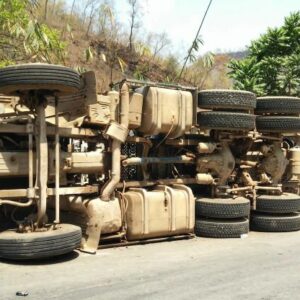
Under the First Amendment, you can assemble and express your views in an organized protest. Government officials and law enforcement are also within their rights to place restrictions on the exercise of speech rights.
You can protest on public property like sidewalks, parks, and streets. You can also express your views in front of government buildings if you’re not blocking access or interfering with their regular use.
With so many dos and don’ts surrounding protests, it can sometimes be hard to attend them confidently. Here’s what you need to know before attending your next protest for a cause you’re passionate about:
If You’re Arrested, You Should Seek Legal Help Immediately
Whether you believe you’re in the right or know you have done something wrong, seek legal help immediately after being arrested at a protest. Liberty Law Edmonton criminal defence lawyers understand the laws surrounding protests and activism, whereas you may not.
They can identify any issues with how you were arrested and may help you have your charges reduced or even dropped altogether.
You Should Be Treated Equal to Counterprotesters
Despite you and counter protesters having vastly different views, that doesn’t mean you should be treated any differently by law enforcement. You both have the same right to protest for your cause, and law enforcement should take the same approach for both groups, regardless of their own views.
This means that law enforcement can keep antagonistic groups separate but must let them see and hear each other.
You Can Take Action If Your Rights Have Been Violated
Arrests happen at many public protests, but that doesn’t mean they’re all just. You can take action if you’ve been arrested or believe your rights have been violated in another way.
According to the American Civil Liberties Union (ACLU), you can:
- Write down important details, like the officers’ patrol car and badge numbers
- Obtain witness contact information
- Take photos of any injuries
- File a written complaint to the civilian complaint board or the officers’ internal affairs division
You Can Take Photos and Videos
Many protestors and activists want to take photos and videos of an event they’re participating in to have something tangible to help them remember a moment in history. You are allowed to take pictures and videos in public spaces with anything in plain view.
Police officers cannot demand to see your photos and videos unless they have a warrant. They are also not allowed to tell you to delete data. However, if you’re protesting on private property, a landowner can set rules for whether you can or can’t take photos and video footage.
What to Do If the Police Stop You During a Protest
Law enforcement can’t stop you from protesting, but that doesn’t mean people can’t be stopped by the police while protesting. If that happens, remain calm and keep your hands visible. Refrain from arguing, resisting, or obstructing the police.
Let the police know that you’re not disrupting anyone else and that the First Amendment protects your right to protest. You can then ask if you’re free to leave. Walk away if the officer says you are. If you’re arrested, ask why, remain silent, and ask for a lawyer.
Being arrested during a protest can be daunting, especially when you aren’t sure of your rights and obligations. Understanding this basic information above might help you navigate your next protest or law enforcement interaction with confidence.


